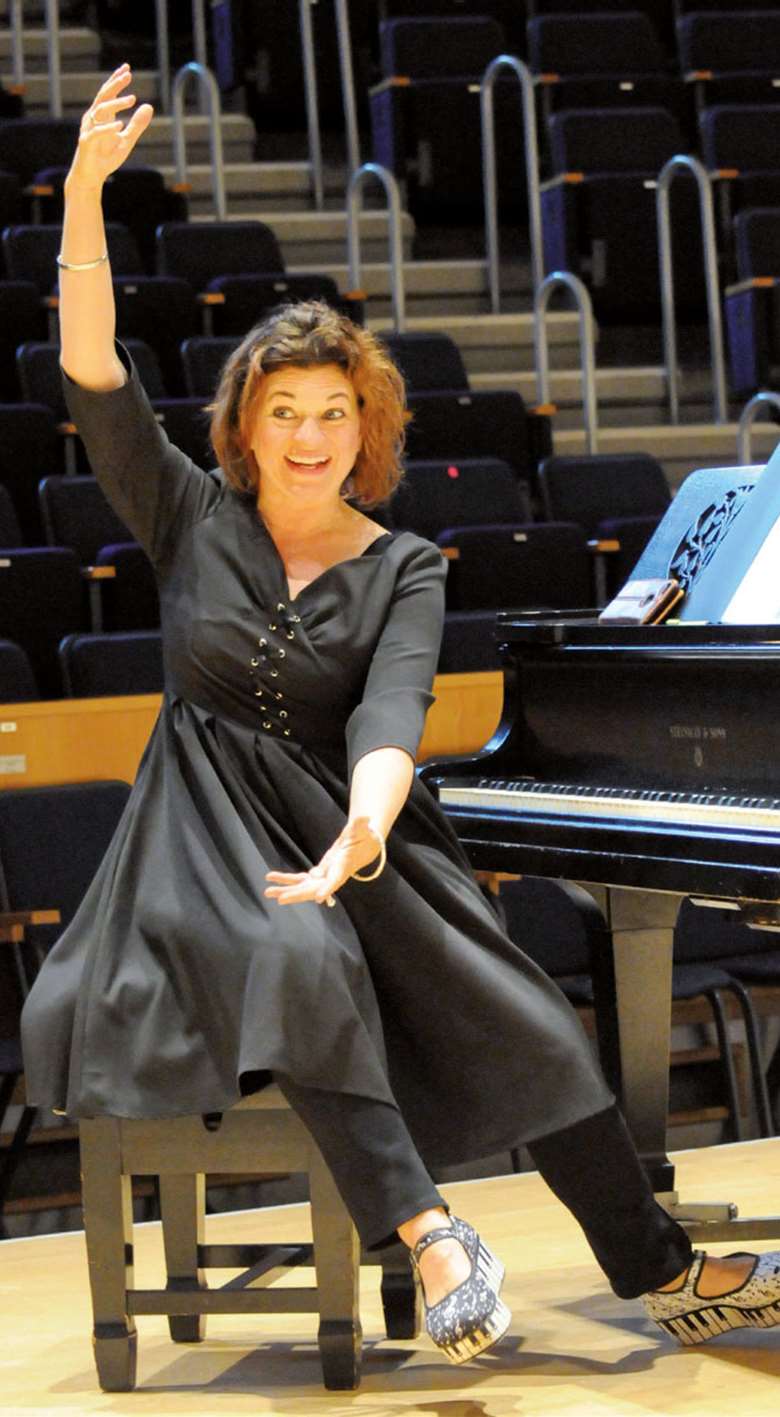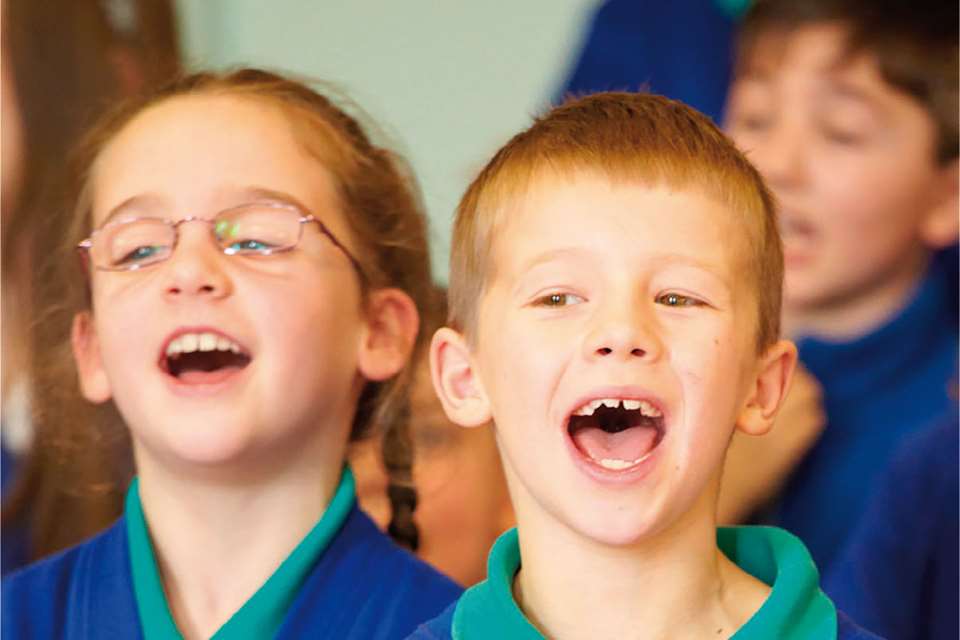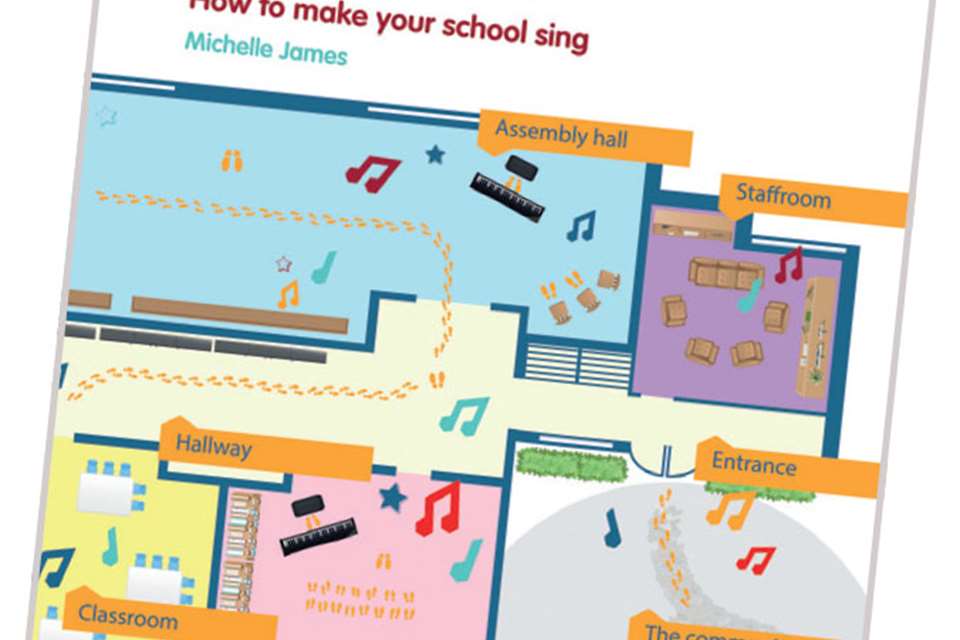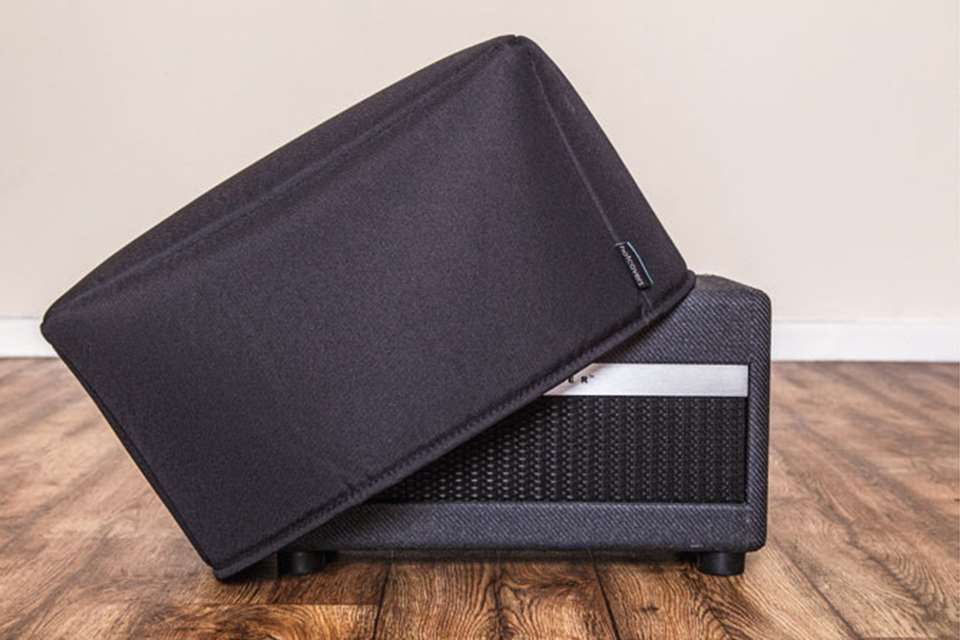Q&A: Kate Courage
Hattie Fisk
Monday, August 1, 2022
Freelance composer, conductor, musician and teacher Kate Courage writes personalised songs for schools, and was involved in the ‘Sing Tank’ before it became Sing Up. Hattie Fisk finds out more

Courtesy Kate Courage
HF: How did you get involved with Sing Up?
KC: Howard Goodall – who I had met at the Schools Proms that I conducted in 2006 – got in touch with me about getting involved with a ‘Sing Tank’, which then became Sing Up. With this project I worked with Gareth Malone and a few other people to improve the breadth of singing in schools across the country, and we discussed a question every week about what is important to teachers, how they can set up choirs, what they need to be able to access music, and so on. When I heard that Bristol Council was going to remove funding for the music service, I applied for a similar job as assistant head of Wiltshire Music Service, where I lived. Government cuts meant that the music service closed down in 2015, so I went freelance, which is what I do now!
HF: What is a highlight of your career so far?
KC: I would have to say standing on the Royal Albert Hall stage, conducting 500 children in an orchestra with the Music for Youth Schools Proms – it doesn't get much better than that, and I did it twice! It was especially touching, as both times we were performing a song I had written for a specific child. The first time it was for a refugee boy who had come from Iraq – he was unable to speak English and he struggled to engage with the wider curriculum. However, when he came to sing, he transformed and was really passionate. It really doesn't matter where you are or what language you speak; so, I wrote Under the same sky.
The second song was a piece I wrote for an amazing girl who was going through a difficult time – she had just been diagnosed with extremely severe OCD, and she believed that if she breathed the same air as somebody else that she was becoming them. She couldn't go to school anymore, but she came to choir and stood at the other side of the room to sing. So, I wrote a song about her called World at my feet. Now she is 20-something and doing really well.
HF: Does your musical inspiration always come from students?
KC: Sometimes, but other times I will just get an idea for a song and then it appears. The other day my nephew asked me to tune his ukulele, and in the process I strummed some strings, which then led me to write a song called Bright shines the moon. It can be anything random like that, but when I write a nativity I try and have a different focus each time. For example, we are currently sponsoring and housing a Ukrainian family, and it feels very emotional to have them with us. I am using The Long Walk with Little Amal from Good Chance Theatre and Handspring Puppet Company as a stimulus for this year's nativity, writing about a young refugee girl who goes to a new city and finds compassion and support.
HF: How do you go about writing a school song?
KC: I have created quite a few school songs, as well as commissions for school choirs. I first go into the school and experience a day in the life of its students and staff. The last one was a primary school in Bristol where I had a chaperone for the day – a four-year-old girl who had just been adopted and found it difficult to engage with the curriculum, but was musical and loved singing. She was my advisor, and I wrote down all her ideas for tunes; for the lyrics, I looked at the school values, as well as suggestions from the rest of the children. That is a really positive thing to do, because all the children feel a sense of ownership over that song, and it is something that remains at the school after they leave.
HF: What is the most important thing to remember when leading a children's choir?
KC: I try to remember that the children are usually choosing to be there. You want to make it a lovely time for them – something that they value and gain enjoyment through. A small thing I try to do is make eye contact with every child at some point during the session. Also, teach repertoire that you love, because otherwise you'll be bored to tears. You can't






